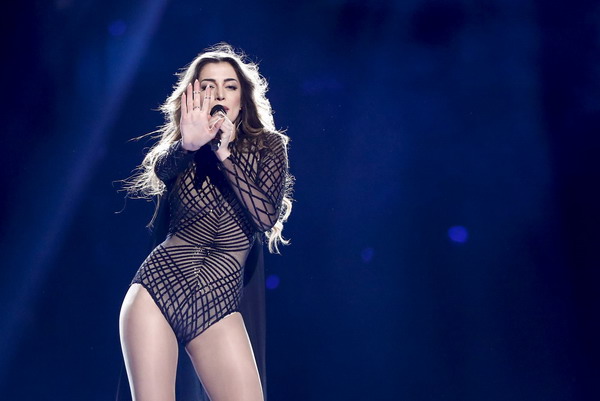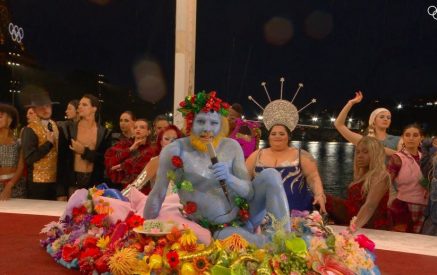Many people in Armenia are treating the “Eurovision” song contest with contempt. The treat with contempt and disgrace by saying and emphasizing that the “Eurovision” is a low-category contest but they treat it too passionately and overly interested. This time, the reason was Iveta Mukuchyan. Nevertheless, we wanted to win this “low-category” contest and especially, this time, we did not spare effort to win but in the end, we only reached the point that one of our media wrote, “Iveta Mukuchyan” won the “Eurovision” by ranking the 7th place. It turns out that our goal is not to win in the “Eurovision” contest but to win the “Eurovision”. Anyway, Iveta won the “Eurovision,” but a semi-Tatar, better to say, a semi-Karabakh rather than an ethnic Ukranian Jamala representing Ukraine was the winner in the “Eurovision” contest. Almost everyone is convinced that Jamala-Susanna’s winning had a political context, rather to say, not a context but a text, moreover, not only against the singer representing Russia but against Russia because Jamala was representing not only an anti-Russian Ukraine but was representing a song, the content of which in fact was anti-Russian, and although we did not understand anything from the text of the song, but there are translators and interpreters. Anyway, despite being political, Jamala’s song and performance were a novelty for “Eurovision”, first and foremost in terms of the text. Unlike the performance of other singers, we cannot argue that Jamala was also singing in English. Maybe, there were some traces of English in the text of her song but overall, it was a spiritual unrest in Turkic language spiced with some accent of mugham.
Some observers and some specialists qualified Jamala’s song and performance “rabis”. We, being amateur and self-taught in this sphere, dare to argue that the mugham and modulations presented by Jamala were totally national in tatar-turcic sense, and this was also a novelty for the “Eurovision” because it has been a long time that the “Eurovision” contestants, including us, have performed song with national nuances, and ours Inga and Anush Arshakyans who have performed and appraised for their exclusively Armenian and folk songs and performance in their lives, for some reasons, they had obviously reduced the nationals “dosage” in their performance in the “Eurovision”, and in our opinion, if they had performed the edited version of one of our folk songs, they would definitely rank a higher place in the contest. Certainly, you can contradict saying that Jamala’s song representing Ukraine has nothing to do with Ukrainian folk songs and music, and we will also confirm your words adding that if Jamala had performed a song by Ukrainian folk motifs, hardly she would have any success by a clear and understandable reasons that any singer and artist can represent exclusively the culture of his nation completely and the best. Jamala just did this.
There were both admirers and dislikers of the winning song but the point that the winner won in a result of a political decision, nearly everyone agrees. Incidentally, this time, the scores of the jury and TV viewers were not convincing and reliable and were presented quite messy. Anyway, no matter we consider “Eurovision” contest politicized and a second class contest, I am sure that next year, we will also follow the “Eurovision” process with the same interest and emotions because eventually, Jamala’s, Iveta Mukuchyan’s, Russian Lazarev’s and Australia representing Korean’s performances will be remembered longer than their ranks in the contest. In other words, it is better for the “Eurovision” to be than not to be. And it is better for us to be in the “Eurovision” than not to be.
Voskan YEREVANTSY
Read also
“Aravot”





















































